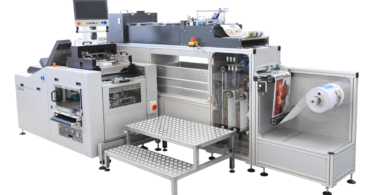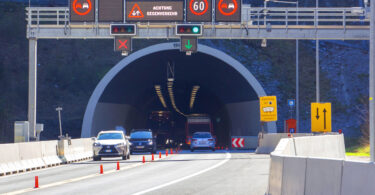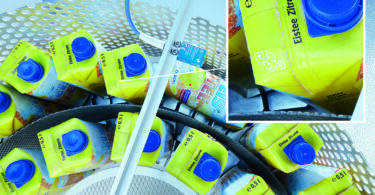Using trigonometry, sensors, and a ton of hard work for a tunnel boring system
With the recent development of a tunnel boring system, CU Hyperloop is a student-led group based out of the University of Colorado Boulder, finding creative solutions to dig dirt with tunneling technology.
SICK is proud to be a bronze sponsor of the CU Hyperloop competition, primarily donating encoders. All the inclinometers that are used on the team's machine are from SICK.
The main focus is to excavate tunnels in a single operation to build transportation systems. Typically, these tunnels are excavated through wet or dry soil, hard rock, or sand, and are used as an alternative to drilling, blasting, and hand mining.
With over 20 students and multiple different sub teams, the group is pushing boundaries by developing innovative solutions for commercial transport, private transportation, and public transit.

CU Hyperloop Teams and Dreams
The team holds three administrative roles: the Project Manager, Chief Engineer, and Businesses Development Lead. The team has many different sub-teams including propulsion, structures, excavation, soil removal, tunnel support, electronics, and software. Turns out, digging a tunnel requires a lot of people and a ton of different moving parts!
Ferin Von Reich is a fourth-year undergraduate studying Computer Science and Applied Math. As a Project Manager, Ferin oversees all business, operations, and engineering efforts to ensure the success of the team.
Max Balasubramaniam, a senior studying Aerospace Engineering, holds a position on the team as Chief Engineer. As Chief Engineer, Max oversees the design, integration, and testing of the entire machine, primarily focusing on the mechanical aspects.
“This is one of the most rewarding experiences. There's a reason that so many people do it as no one’s getting paid. Everyone volunteers to do this and we do it because it’s addicting, ” Ferin said.

Tunnel Boring Machines Galore!
This year, CU Hyperloop designed a TBM to enter a college competition. Tunnel machines are extremely difficult to navigate, as GPS cannot be used, and inertial measurement units are difficult to deploy. With a little bit of basic high school trigonometry and sensors, the TBM was formed.
“It’s been three and a half years from getting this idea initially to having a full machine that we’re putting in the ground. It’s been crazy to watch the growth,” Max said.
The team got their name from a competition held by SpaceX back in 2017. For six years, the team competed on the international stage, beginning at SpaceX’s Hyperloop Pod Competition, and now at the Boring Company’s Not-A-Boring Competition. In 2020, the competition turned a new leaf and transitioned to the tunnel boring competition. In their first year at the tunnel boring competition, CU Hyperloop placed in the top 12. The second year they were in the top six, and last year they were third in the world.

“We went from a very conditional, easy design to inputting components in the machine. Everyone’s grown significantly from an engineering standpoint, and we’ve done all the sides of the design process, which has been cool,” Ferin said.

TBM Competition
The TBM is entered into an annual event where teams build machines meant to dig 100 feet into the ground and 2 feet in diameter as quickly as possible. In the 2022-2023 competition, the tunnel boring machine weighed 1,700 pounds and was over 12 feet long.
“It’s very different from most college competitions where they want specific designs. They allow a wide variety of designs and a ton of freedom in a design space to choose solutions that you want,” Max said.

SICK is proud to be a bronze sponsor of this competition, primarily donating encoders. All the inclinometers that are used on their machine are from SICK. Inclinometers are used to help measure angles of slopes and elevations of objects with gravity.
“Once SICK's inclinometers are combined with other sensors, we use a rotational immune program that tells us where we are and where we potentially have to go,” Ferin said.

The team did field testing in January and held an open house for their finished product in early February. They are extremely proud of what they were able to accomplish and are looking forward to how the team will continue to grow in the future. They are currently competing in the 2024 Not-A-Boring Competition and are excited to exceed previous achievements.





